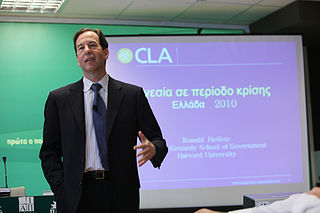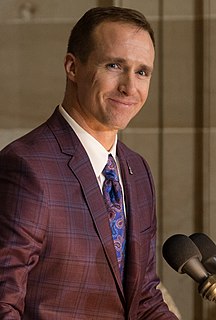A Quote by Chip Conley
As leaders, we understand that intangibles are important, but we don't have a clue how to measure them.
Related Quotes
As we started working with leaders, providing them with assessment feedback, noticing the impact it was having on them, and their teams, a real story unfolded, and the book All the Leader You Can Be became what it is now - a guide to leaders who want to understand their strengths, and also appreciate how to enhance their leadership.
Level 5 leaders are differentiated from other levels of leaders in that they have a wonderful blend of personal humility combined with extraordinary professional will. Understand that they are very ambitious; but their ambition, first and foremost, is for the company's success. They realize that the most important step they must make to become a Level 5 leader is to subjugate their ego to the company's performance. When asked for interviews, these leaders will agree only if it's about the company and not about them.
I always tell people, "There's a book on everyone." I get some of that book before I do anything. If I want to deeply understand someone's reputation, I'll talk to their friends, their former bosses, their peers, and I'll learn a lot about them. I want them to be trusted. I want them to be respected. I want them to give a s - -. Then there are the intangibles: physical and emotional stamina, the ability to confront issues. I can ask all I want about those things, but I also have to see a lot of it.
An effective leader is willing to think about what's happening and how to understand what's going on. Facilitating flow and making others more conscious of it, the leader communicates an awareness of process to the group, making them more aware of their energies and options. One important principle is to keep track of who has not spoken. ... It's also important to notice when people do speak out but are not heard. Effective leaders practice patience, reminding themselves to wait and observe, remembering that there's always more going on in a group than we're consciously aware of.
The best way to measure how much you've grown isn't by inches or the number of laps you can now run around the track or even your grade point average - though those things are important, to be sure. It's what you've done with your time, how you've chosen to spend your days, and whom you have touched this year. That, to me, is the greatest measure of success.



































